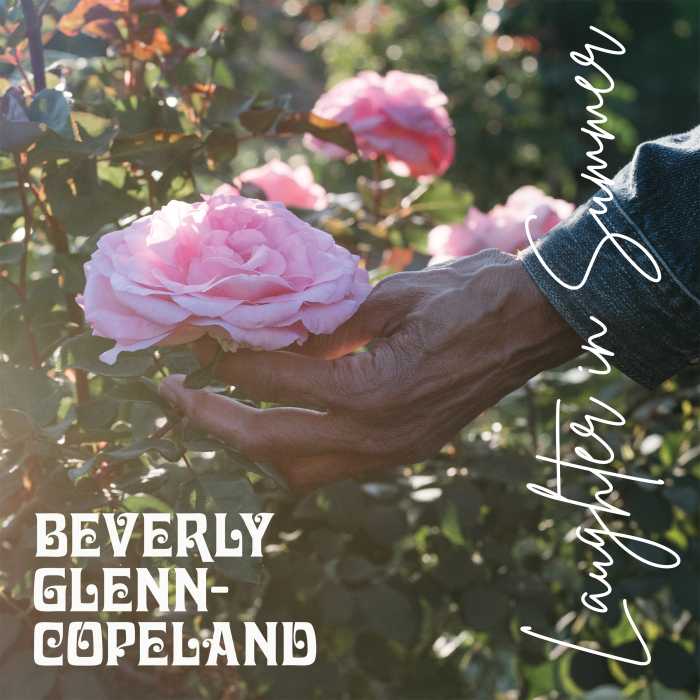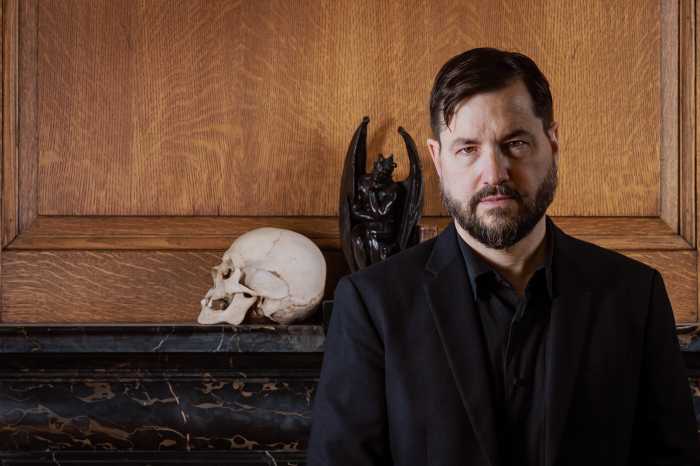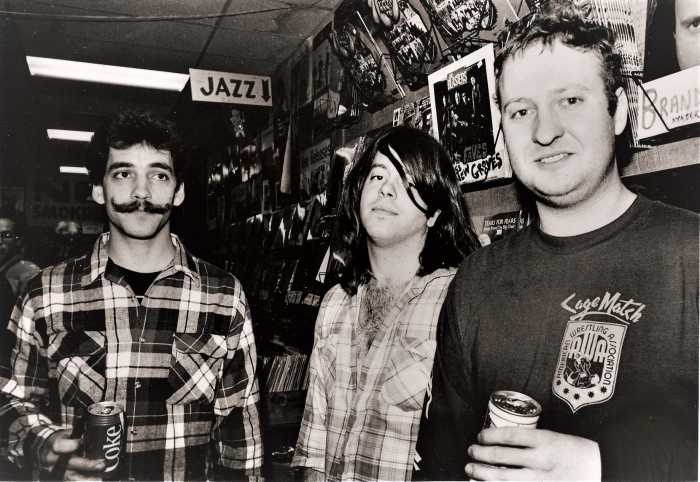In this month’s music roundup, Gay City News looks back at archival releases by two deceased icons of queer music: gay disco singer Sylvester and avant-garde electronic producer SOPHIE.
SOPHIE | s/t | Future Classic | Sept. 27th
After transitioning publicly in 2017 and releasing her first studio album “Oil of Every Pearl’s Un-Insides,” SOPHIE seemed like she was just getting started. Her death in 2021 was a complete shock, especially since she had become of the most prominent and influential trans women in music history. She produced Madonna and Vince Staples songs and pioneered hyperpop with her own music. Fans of Charli XCX’s “Brat” have her to thank for Charli’s current direction, which began when SOPHIE produced her “Vroom Vrrom” ep in 2016. (Charli paid tribute to SOPHIE with “So I.”) Sam Smith and Kim Petras’ “Unholy” topped the charts with a bastardized version of her sound.
Like many artists who become icons, she left behind a small body of work: the singles compilation “Product,” “Oil of Every Pearl’s Un-Insides,” and a set of remixes from it. In cases like this, the music industry usually steps in and cranks out album after album of whatever scraps they can dig up. That’s not the case with SOPHIE’s posthumous album. While it includes new mixes of a few songs leaked years ago, it’s a serious attempt at finishing her second album as she would’ve executed it, featuring songs which were almost completed. Her brother and long-time collaborator Benny Long co-produced it.
Like “Oil of Every Pearl’s Un-Insides,” “SOPHIE” is oddly sequenced, but since this album is much longer, it damages its momentum. The first few songs on “SOPHIE” are spare and austere. The instrumental “Intro (The Full Horror)” boils an orchestral movie score down to primal dread. “Rawwwwww” places Jozzy’s singsong rapping over a minimal, speaker-rattling beat, with nothing but vocals and percussion. During “The Dome’s Protection,” Russian DJ Nina Kraviz describes a dystopian world over a quietly howling backdrop, as though she were lost in a snowstorm: “consciousness is a very rare and precious thing.” “SOPHIE” follows it with the poppy “Reason Why,” which could be a top 40 hit. The warped dance music of “One More Time” deconstructs the genre without any irony. “Live In My Truth” is similarly cheerful and open-hearted: “I want to live in my life, in my truth.” Yet the flow of these accessible songs is interrupted by “Do You Wanna Be Alive” and “Elegance.” The latter goes through several beat switches, with an emphasis on speedy, even martial drums.
Given all the changes “SOPHIE” goes through, it’s hard to listen to the whole album in one go. Without containing any bad songs, its presentation does not bring out its strength. Even if this went against the project’s intentions, it might be more approachable split into two short albums, reflecting a different sound.
Did SOPHIE’s death lead to the absence of her vocals on “SOPHIE”? The reliance on guests and absence of her own lyrics makes one wonder what she might have written about her experiences in the last two years of her life. Although a featured vocalist joins in on every song but “Intro (The Full Horror),” they’re as likely to recite their lyrics or repeat one word for the entire song as sing.
This album returns to the sci-fi world conjured up by SOPHIE’s sound design. Most melodies come from synthesized simulations of bells and xylophones. The keyboards on “Plunging Asymptote” resemble a distorted guitar. SOPHIE likened her production to sculpture; even at its harshest, its textures felt wobbly and rubbery. She processed the human voice similarly. Her guest singers’ vocals are treated so that they can be impossible to pin down to a gender binary, yet their melisma exudes orgasmic pleasure.
As the final sound of SOPHIE’s body of work, “Love Me Off Earth” lets house music decay into individual drums, sputtering out. The transhumanist and sci-fi imagery running through “Oil of Every Pearl’s Un-Insides” persists, letting “immaterial boys and girls” speak. Hearing these songs after SOPHIE’s passing – can anyone listen to “Intro (The Full Horror)” without picturing it? – makes the future they envision much more poignant.
Sylvester | “Live at the Opera House” | Craft Recordings
“Live at the Opera House” captures Sylvester at the pinnacle of his career. Recorded on March 11, 1979, it comes a year after he became one of very few out gay men to land a hit during the ‘70s with “You Make Me Feel Mighty Real.” Debuting in the early ‘70s, Sylvester tried out several styles: his first two albums showcased his covers of songs by James Taylor and Neil Young, mixing R&B and glam-rock. When disco hit, he finally achieved stardom. San Francisco declared the day of this concert “Sylvester Day,” but the “Disco Sucks” backlash quickly sent his career plummeting. The sheer heat and soulfulness of “Live at the Opera House” puts the lie to ‘70s criticisms that the genre was cold and robotic. You can hear the sweat pouring off the stage.
Fantasy Records released part of this set as the 1979 album “Living Proof,” shortening songs and filling out side four with new studio performances. “Live at the Opera House” includes the entire 128 minutes, even between-song banter. (In the ultimate ‘70s touch, he performed the concert during an acid trip mellowed by Quaaludes.) A premature greatest hits collection, it includes his entire range, from piano ballads (“Medley #2: Could It Be Magic/A Song For You”) to uptempo disco (“Dance (Disco Heat, ” “Never Can Say Goodbye”). Performing covers was a means of reinterpretation: The album’s high point is his take on the Beatles’ “Blackbird.” Sylvester takes hold of Paul McCartney’s ode to the civil rights movement from the inside. He turns into an exuberant celebration of the power of unashamed Black queerness, emphasizing the line “all your life, you were only waiting for this moment to be free.” He received the key to the city immediately following the song.
Playing with a 26-piece orchestra (who deliver a medley of three of his hits as an overture, done twice), Sylvester stretched his songs out: five in a row all top 10 minutes. Tireless percussionists propel the music forward, with cowbells adding a Latin touch. The electronic edge producer/keyboardist Patrick Cowley gave to some of his studio albums is gone. Sylvester’s voice was assertive but never overbearing: even on long, slow songs, the album emphasizes drama, with constant call-and-response with female singers. “You Make Me Feel (Mighty Real)” is expanded to 15 minutes. This isn’t introductory material: it’s a complete recording of a concert, rather than an album designed for casual home listening. On streaming, Sylvester’s spoken outros should have been sequenced as individual tracks.
Despite the optimistic tone of the concert, with “Sharing Something Perfect Between Ourselves” dedicated to his partner, it took place in the context of rising homophobia, with Anita Bryant taking aim at LGBTQ people’s civil rights and Harvey Milk assassinated just a few months before. Even when the lyrics don’t directly address politics, “Live at the Opera House” is an act of resistance.



































